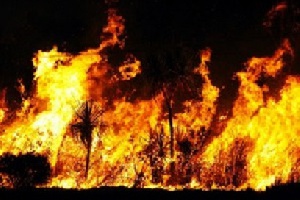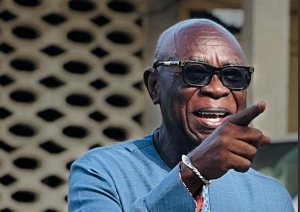I must say that yesterday was a hectic day, having travelled to some villages in my district for several funerals. Of course, weekends, these days, can better be described as funeral days. Our culture requires that we solidarize with friends, relatives, family members, acquaintances, school mates and other relations, in trying times like funerals. You would certainly be culturally unfit if you do not find time to empathize and sympathize with others in times of trouble, especially those within your vicinity. I returned from the village, exhausted. As I sat on my sofa in my attempt to take a rest, I eventually started reminiscing my past years of existence, my impact on this earth, my major impediments and obviously, how I can develop and liberate myself from the shackles of endemic poverty which has virtually engulfed my entire home region, Upper West.
The nostalgia, fantasy and lofty idealistic realm I found myself in the few moment of careful and deep self-introspection, are almost indescribable. At a point, a wept, felt useless, unimportant and uneducated. Finally, a scintillating smile took over me. Well I didn't know whether it was intrinsic or by miracle but I saw many visions before me, many opportunities, and the feeling of self-worth took over me. Like a cow boy, in morning dew, I felt cold and goose pimples developed all over me.
Apparently, the spirit to write visited me and urged me to celebrate my birthday with a piece of writing. I finally landed on educating the public, especially those in the Upper West, to put a stop to the cyclical bush burning, which I believe, is in diverse ways, escalating our avoidable poverty levels.
Bush burning is the act of setting forests, weeds and grasses on fire. This act of bush burning is rampant and common in the three regions of the north. The savanna belt has only two seasons, the rainy season and the dry season. The raining season ends around October. The beginning of November mostly usher us into an unfriendly weather situation precipitated by the North East Trade wind popularly known as harmattan. It makes the weather very dusty, and drier. The tress and grasses turn brownish and become drier and any source of fire can cause a vast area burnt.
In our case, over the years, I have observed that bush burning is deliberately orchestrated by our own people. These people have their own reasons for burning the bush. Some do so in an attempt to prepare their farm lands for the next crop season and others do so to enable them do haunting. Herdsmen also deliberately burn lowlands to facilitate the growth of fresh pastures to feed their cattle. When you look at it critically and weigh the gains and losses that come with bush burning, you would agree with me that bush burning is having serious adverse effects on our land.
Bush burning can cause the soil to lose its ability to absorb and retain water. After a fire, the top layer of soil may become water repellent. This causes rain to drain off the soil without absorbing into the ground. The more intense the fire, the greater the chance that the top layer of soil will become water repellent. Once fire consumes bushes, their roots no longer pull moisture into the soil. Additionally, the loss of shade that the bushes once provided means soil moisture is more likely to evaporate.
Again, if we get to know that through bush burning, we chase the wild animals we so seek to haunt, far away into the bush, and that we make the land inhabitable for these animals, we would not burn the bush in the name of haunting. The bush is the home for the wild animals and can facilitate more reproduction of these animals. If we don't burn our bush, we would have more animals in the bush and that would enhance the luck of hunters. It is because of this perpetual bush burning that has made some animal species, very scarce and unknown by our generation except the pictorial descriptions we read about these species. We need to preserve some of these species. Apart from our next generation knowing these animals for educational purposes, it would also enhance our tourism.
Also, Nitrogen is bound in soil in an organic form. This organic nitrogen releases slowly into the soil and is made available for plants to use. Bush burning changes organic nitrogen into mobile nitrates. Plants are able to use mobile nitrates easier than organic nitrogen, and this accounts for the sudden plant growth that appears after a fire. However, mobile nitrates are more susceptible to being washed away with water runoff. Long-term bush burning creates soil that is lacking in nitrogen. Micro-nutrients, normally present in soil with decomposing vegetable matter, are lacking in soils after a fire. The combustion process of bush burning also increases soil's PH. This is problematic in ecosystems that rely on low pH values, and native vegetation may have a hard time establishing itself again.
Bush burning sometimes destroys our farm products. Many farmers are still in their farms harvesting and may as a result of transportation challenges as well as lack of storage facilities at home, keep their products somewhere in the farms. These products are not spared by bushfires if extra care is not taken. As we speak in the month of November, many farmers are still harvesting but as the grass turn brownish, bush burning will soon come and one can imagine the potential dangers.
Let me make it clear to the public that bush burning is a crime and there is an explicit legal regime on bush burning but enforcement of same remains problematic. We have not educated the public enough to know that bush burning is illegal and I urge the National Fire Service, National Commission for Civic Education to partner with NGOs, Clubs and societies, educational institutions, traditional rulers and the media, to intensify education on the need to stop bush burning. It is illegal and unhelpful to us as a people.
The PNDCL 229, Act 1990, Section 1 lucidly postulates "Excerpt as otherwise provided under this Act, it is unlawful for a person to start a bushfire for any purpose".
For the avoidance of doubt, the section 2 explains "starting a bushfire" as "For the purpose of this Act, a person starts a bushfire if an action of that person results in the uncontrolled burning of a farm, forest or grassland ".
The above legal dictate has since been "useless" in my own view because we have failed to enforce it. The law enforcers must trigger it to save and protect the arable land of Ghana, especially that of the Upper West Region. Pardon me if I'm a bit bias. Next to my country Ghana at large, is my beloved Upper West Region.
If we really want to develop our northern sector to catch up with the development of the southern part of the country, then critical thinking and attitudinal change must be considered paramount than any government policies. No wonder, plantation farms that were started by the Savannah Accelerated Development Authority are being destroyed by bushfires.
Our traditional rulers must, with a matter of urgency consider using bylaws alongside the national laws to stop this menace of bush burning. If we sit aloof and waiting for any actions to come from somewhere, we would be doing to ourselves, a great disservice.
Let's launch a serious campaign against bush burning now.
Let me concluding by informing my reading public that today Sunday, November 11, is my birthday. I thank you for the many years of support. There is no writer without readers; your constant engagements on my pieces, the pieces of advice and the many encouragements given me have made a greater impact in my writing carrier. I pray that God opens my mind and eyes for new ideas in my quest to using my pen to contributing to national development.
Opinions of Sunday, 11 November 2018
Columnist: Denis Andaban
Stop the bush burning now!!
Entertainment


















